
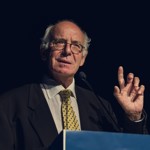
Raffaello Cossu retired in 2018, is Emeritus Professor of Environmental Engineering at the University of Padova (IT). He is Chairman of "Sardinia" International Symposia on Waste Management and Sustainable Landfilling, and “Venice” International Symposia on Biomass and Waste to Energy. He carried out intensive scientific research on landfilling and designed more than 20 landfills in Italy and abroad. President of IWWG (International Waste Working Group) from 2004 to 2009. From 2009 to 2017 he was Editor in Chief of Waste Management, the international scientific journal published by Elsevier. From 2018 he is Editor in Chief of DETRITUS, the new IWWG multidisciplinary journal for Waste Resources and Residues. In 2017 he was recipient of the IWWG "A Life for Waste" Award. He has given a series of talks and presentations in conferences on Waste Management and Landfilling throughout the world. He has authored more than 200 articles and conference papers and co-edited five international books on waste management and landfilling technology, published by Academic Press, Elsevier, EF and Spon. READ MORE ABOUT HIS WEBINAR >
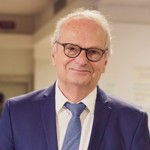
Rainer Stegmann retired in 2008 as Professor Head of the Institute of Waste Management at the Hamburg University of Technology (DE). He has been a visiting professor at several Universities and has coordinated several international and national research projects. He is one of the prominent researchers in the field of waste management and provided in particular fundamental scientific contributions on sustainable landfilling, anaerobic digestion, biogas generation and control, treatment of contaminated soil. From 2009 to 2011 he was director of the R3C Research Center at the Nanyang University of Technology, Singapore, for which he is now scientific advisor. He is co-chairman of several national and international conferences and has authored more than 300 scientific papers and several international books. Since 2008 he has been Chairman of IWWG (International Waste Working Group). READ MORE ABOUT HIS WEBINAR >
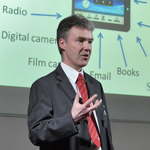
Professor of Applied Environmental Science and Associate Dean (Enterprise) in the Faculty of Engineering and the Environment at the University of Southampton, UK. He has an established track record in the field of environmental pollution and waste management. His work at Southampton has focused on pollution, waste- and carbon-related issues. Ian has published extensively in books and peer-reviewed journals as well as producing over 100 commercial project reports. He has a long track record of holding positions as an External Examiner for taught and research degrees, service on external bodies, sitting on the scientific and organizing committees of several international conferences, working on national and international task groups. Ian has received a number of awards for his research activities, including: the International Solid Waste Association Publication Award in 2016 and 2017, the Institution of Civil Engineers Baker Medal in 2010 and awards from the Chartered Institute of Wastes Management (Waste Regulation Award 2010, 2012/13, 2013/14 and 2014/15; James Jackson Award 2006, 2015/16, 2016/17; J.C. Dawes Award 2016). READ MORE ABOUT HIS WEBINAR >
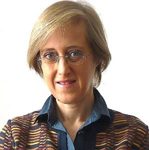
Alessandra Polettini is Full Professor at the Department of Civil and Environmental Engineering of the University of Rome “La Sapienza”. Here she is chair of the Undergraduate and Master programmes in Environmental Engineering and lecturer of “Sanitary and Environmental Engineering” and “Solid Waste Treatment” in the same programmes. She is a member of the School for Advanced Studies of the University of Rome “La Sapienza”. Her research interests include the treatment and recycling of residues from thermal waste treatment, the anaerobic digestion of organic wastes, the degradability of bioplastics, the study of the environmental behavior of waste materials, and the treatment of contaminated dredged sediments. She has co-authored over 150 scientific papers that have been published in international journals and conference proceedings.
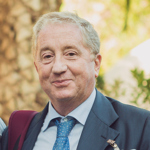
Umberto Arena, Ph.D. in Chemical Engineering, is full professor of “Solid waste management” and "Industrial Pollution Control Engineering" at the University of Campania "Luigi Vanvitelli". He is co-Editor-in-Chief of the Waste Management journal (Elsevier) since January 2018, and Associate Editor of the same journal from 2012 to 2017, with specific competence in thermal treatments and LCA studies for integrated waste management. He has been guest professor/visiting scientist in some universities and research centres, such as Tongji University of Shanghai (China), Nanyang Technological University of Singapore, Kuwait Institute of Scientific Research of Kuwait City, and keynote lecturer in several international schools. He is member of the Managing Board of the International Waste Working Group, and, in the same association, the leader of the Task Group on Thermal Treatments. He is team leader of national and international projects about processes and technologies for resource (materials and energy) recovery from biomass and waste, waste management planning, and life cycle assessment of waste management schemes. He is also a consultant of public institutions, industrial companies, and research centres on similar topics. He is author of more than 110 scientific papers published in primary international scientific journals and wrote chapters in multi-authored books dedicated to fluidized bed reactors, with specific attention to gasification and pyrolysis of different kind of solid wastes. READ MORE ABOUT HIS WEBINAR >
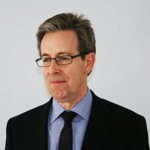
Prof. Keith Knox is Visiting Professor within Engineering and Physical Sciences at the University of Southampton. Keith Knox is Principal of Knox Associates (UK) Ltd, an independent consultancy providing advice on landfill and waste treatment. His main professional interests are in the areas of leachate management and landfill processes, particularly those affecting long term stabilization and sustainability. Keith’s work on leachate management has included many projects on the design and operation of a wide variety of leachate treatment plants and processes, both UK and worldwide. He has been at the forefront of technical developments in leachate treatment, including ammonia nitrification, single tank SBR denitrification, use of activated carbon, and high temperature stripping of ammonia. His interests also include leachate quality and he has undertaken several Environment Agency funded projects on, for example, trace organics in landfill leachates, and on the anticipated leachate quality from hazardous wastes, MSW incinerator residues and mechanical-biological treatment residues. In the area of Water Balance methods and prediction of leachate generation, Keith has a particular interest in the prediction of leachate generation in tropical countries that experience very high wet season rainfall, and the effect this has on the sizing of leachate treatment plants and seasonal storage facilities. Keith’s interests and work on landfill processes have included. READ MORE ABOUT HIS WEBINAR >
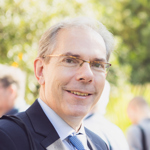
Marco Ritzkowski is a lecturer at the Hamburg University of Technology (TUHH), Sustainable Resources and Waste Management since 2008, and associate professor at Polytech, Peter the Great, St. Petersburg Polytechnic University in Russia since 2018. In 2005 he received his PhD from TUHH. He participated in several national and international research-projects regarding the landfill-behaviour of municipal solid waste, waste pre-treatment and aftercare of MSW landfills and he was the responsible researcher for the scientific attendance of the German R&D-project 'Aerobic in-situ stabilisation of landfills'. Since 2009 he is managing international projects in connection with the impact of climate change on the environment as well as aftercare of solid waste landfills. Marco Ritzkowski is Managing Director of the International Waste Working Group (IWWG) since 2011 and leader of the IWWG Task Group on Landfill Aeration since 2008. READ MORE ABOUT HIS WEBINAR 1 AND WEBINAR 2 >
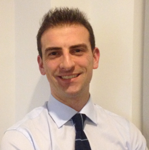
Dr Alibardi is Lecturer in Separation Processes at the Water Science Institute of Cranfield University (UK). He holds a degree and a PhD in Environmental Engineering from the University of Padova (IT). Dr Alibardi’s research interests centre on the development of separation technologies and systems integration to lead on the transition towards the circular and hydrogen economies. He is active in the definition of the role of hydrogen to decarbonise the wastewater sector and on the development of the concept of biorefinery for the waste management sector. He works the area of energy recovery systems from wastewater network to understand the wider impact of these systems and on the use of coarse separation systems as an alternative to conventional membranes to develop combined membrane-biological processes to sustain the production of added value products from waste materials. Dr Alibardi is Centre Manager of the EPSRC Centre for Doctoral Training in Water Infrastructure and Resilience (WIRe - www.cdtwire.com). He is also Co-Leader of the Task Group on Waste Biorefinery of the International Waste Working Group (IWWG - www.iwwg.eu). READ MORE ABOUT HIS WEBINAR >
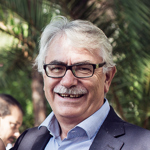
Since 2019 he is Emeritus Professor at the School of Environmental Engineering at the Technical University of Crete, where he founded and directed the Laboratory of Toxic and Hazardous Waste Management for almost 18 years. During the period 1985-2001 he was Director and Vice-President of the Battelle Institute of Germany, while from 1980 untill 1985 he was Scientific Associate and Program Manager in the Research Centre GKSS-Forschungszentrum Geesthacht also in Germany. The scientific fields of his concern include hazardous waste management, sustainable municipal solid waste management and soil and groundwater remediation, using innovative technologies. He has collaborated with many research centers and institutes (e.g. Max-Planck, MIT, Battelle Memorial Institute, BNNL, etc.) and has been a visitor professor in many Universities, such as the Technical University of Hamburg, Dresden and Cottbus in Germany. He possesses 5 patents, has published more than 100 papers in scientific journals and has presented more than 200 papers in different international scientific conferences. In 2015, he became an elected member of the International Waste Working Group (IWWG) Managing Board and this period (2021-2022) he is the President of IWWG.
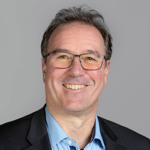
He is an environmental engineer and studied Technical Environmental Protection (Technical University of Berlin) with 25 years of experience. Since 2006 he is full professor of Waste Management and Material Flow of the Faculty of Agricultural and Environmental Sciences of the University of Rostock, Germany. Since 2012 Prof. Nelles is also the Scientific Director of the German Biomass Research Center (DBFZ) in Leipzig. His research activity is based on: fundamental and applied aspects of waste management with focus on technological, environmental and economic aspects to mechanical, biological and thermal treatment systems of waste and biomass in different recycling and recovery routes. He is a member of national and international Advisory Boards of organisations, conferences and journals in the field of waste management and biomass utilisation. He is author of over 400 articles and chapters in books and journals since 1993. READ MORE ABOUT HIS WEBINAR >
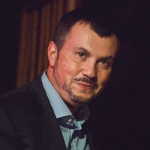
Aldo Muntoni is full professor of Environmental Engineering at the Department of Civil-Environmental Engineering and Architecture of the University of Cagliari, Italy, where he teaches the academic courses of Contaminated Sites Recovery and Remediation and of Soild Waste Management. He has been chairman of the PhD programs in Earth and Environmental Sciences and Technologies (EEST) and in Geoengineering and Environmental Technologies of the University of Cagliari. His main fields of interest are solid waste management, energy and material recovery from waste, hazardous waste stabilization, soil and sediment remediation. Author and co-author of more than 250 scientific papers published on international and national journals, international and national books, proceedings of international conferences. Reviewer for international journals. Responsible for several International and National research projects. He received awards, including the “National Energy Globe Award” in 2010 for research on combined production of hydrogen and methane from biodegradable waste. READ MORE ABOUT HIS WEBINAR >
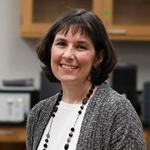
Dr. Nicole Berge is an Associate Professor in the Department of Civil and Environmental Engineering at the University of South Carolina. She received her BS and MS in Civil and Environmental Engineering from the University of South Carolina in 1999 and 2001, respectively. She received her PhD in Environmental Engineering from the University of Central Florida in 2006. Prior to joining the faculty at the University of South Carolina, Dr. Berge worked as a postdoctoral associate at Tufts University. She is a co-leader of the IWWG task group on “Engineered Nanomaterials in Waste” and an IWWG board member. Dr. Berge's research focuses on improving our understanding of how physical, chemical, and biological processes can be manipulated to promote sustainable waste treatment techniques that lead to carbon sequestration, energy generation, and/or value-added product production. Specific areas of exploration include: the fate of disposed nanomaterials, pharmaceuticals, personal care products and endocrine disrupting compounds in bioreactor landfills; thermochemical conversion of municipal solid waste; increasing the energy yield from waste streams; resource recovery from waste streams; leachate treatment processes; and the development and subsequent evaluation of innovative groundwater remediation technologies. READ MORE ABOUT HER WEBINAR >
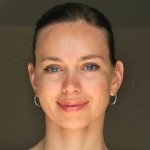
Jurate Kumpiene is a Professor in Waste Science and Technology at Luleå University of Technology, Sweden. She has been implementing research and education in the area of waste management, with particular focus on waste properties, characterization and treatment, as well as risk assessment and remediation of contaminated soil. She has published 50+ scientific papers and book chapters and 50+ conference publications. Member of the International Waste Working Group (IWWG) and an Associate Editor of the journal Waste Management. R&D and innovation projects include close cooperation with national waste management companies, consultancies and entrepreneurs. READ MORE ABOUT HER WEBINAR >
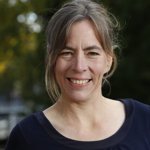
Julia Gebert is Associate Professor in the field of Soil Science at TU Delft, Department Geoscience & Engineering. Her research focuses on biological carbon cycling in natural environments such as river sediments and its impact of sediment abiotic properties, such as sediment rheology. Relating to sediments, she further investigates beneficial use options for dredged materials. Another focus lies on the controls on and impacts of carbon cycling in landfills, both within the waste body (organic matter degradation and contaminant release) and in cover soils and methane oxidation systems. In this context, she currently leads the in situ landfill stabilisation project CURE (Coupled multi-process research for reducing landfill emissions). Since a few years, Julia succeeded Marion Huber-Humer as chair of the IWWG task group CLEAR (Consortium for Landfill Emission Abatement Research). READ MORE ABOUT HER WEBINAR >
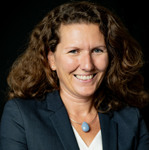
Marion Huber-Humer is full Professor for “Global Waste Management” and head of the Institute of Waste Management and Circularity at the BOKU-University (University of Natural Resources and Life Sciences) in Vienna. She is Board Member of the International Waste Working Group (IWWG) and was one of the founders of the IWWG task group CLEAR (Consortium for Landfill Emission Abatement Research) in 2002, and lead this task group for more than 15 years. Moreover, she is board member of the ÖVA (Austrian Association for Management of Contaminated Sites), of the ÖWAV (Austrian Water and Waste Management Association), and vice president of ISWA-Austria. Her current research focuses on the investigation of sustainable global waste management concepts and circular economy approaches, biological waste processing, waste characterization, sustainable landfill technologies, landfill emission mitigation concepts and monitoring, with a particular research issue on biological methane oxidation in biocover systems. READ MORE ABOUT HER WEBINAR >
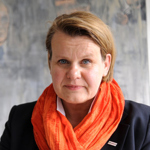
Kerstin Kuchta is head of the research group “Sustainable Resources and Waste Management” at the Hamburg University of Technology and full professor at the Institute for Environmental Technology and Energy Economics. Kerstin Kuchta graduated 1991 in Environmental Engineering at the Berlin University of Technology. She continued her academic carrier as a researcher at Darmstadt University of Technology and finalised her PhD in 1997. From 2002-2010 she was Full Professor for Energy and Environmental Management at Hamburg University of Applied Science and founding dean of the faculty of engineering at the German-Kazak University (DKU) in Almaty, Kazakhstan. In 2011 she moved as a full professor to the Hamburg University of Technology, established her research group and is Vice President for higher Education and Academic Affairs of TU Hamburg since 2019. Her major research interests are promoting the circular economy for electronics, critical metals, construction material as well as biobased and conventional polymers. She is president of the board of trustees of the German waste management industry (EdDE) and is leading several work groups in the field of resource recovery, climate protection and sustainability on the regional, national and international level. READ MORE ABOUT HER WEBINAR >
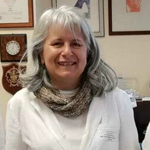
Full Professor of General and Applied Hygiene, Director of Environmental and Food Hygiene Laboratories (LIAA), at the University of Catania (IT), and Director of the Hygiene Complex Unit of the Catania University Hospital. Head of the Integrated Cancer Registry CT-ME-EN. Coordinator of numerous national and international working group. Member of numerous national and international commissions and scientific societies. Member of the Task-force Environment and Health of the Italian Ministry of Health. She has received numerous awards, including the Merli Award for the Environment in 2019. Author of about 800 publications in national and international journals. Editor and Reviewer in numerous International Impacted Journals. She has distinguished itself in the development and consolidation of new water, waste water and waste management monitoring technologies and solutions. She worked a lot for the development of green solutions and knowledge in the field of the waste management, for the acquisition of correct lifestyles and for the protection of public health. She has long been involved in the research of innovative methods for determining emerging pollutants in environment, and more recently micro- and nanoplastics (national and international patent mplastest PCT/IB2019/051838). READ MORE ABOUT HER WEBINAR
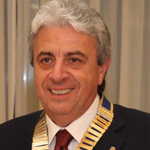
Giuseppe Bonifazi is full professor of raw materials beneficiation at the Department of Chemical Materials Environment Engineering (DICMA), Faculty of Civil and Industrial Engineering at Sapienza University of Rome (IT). He has more than 35 years experience on the characterization of particles and particulate solids materials by image processing. His main scientific and technical fields of investigation are related to the study of software and hardware integrated architectures for the synthesis, classification, and recognition of numeric signals; the development and set-up of procedures for the identification of objects and materials using pattern recognition techniques based on classical and hyperspectral imaging techniques; and analysis and application of methodologies to study and model industrial processes with reference to particulate solids.
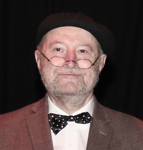
Werner Bidlingmaier was professor of Waste Management at the Bauhaus-University Weimar, Germany from 1997 to 2011 and full-professor of Waste Management at the University of Essen from 1993 to 1997. Nominated as external lecturer at the University of Stuttgart, Germany in 1991, he was leader of the transfer centre for biological waste treatment Weimar from 1998 to 2001. Additionally, he was Vice-Rector of International development at the Bauhaus-University Weimar. He won the Scientific Award University of Brussels in 1984.
He is author of 12 scientific books, 87 publications and 69 conference papers.
READ MORE ABOUT HIS WEBINAR
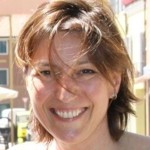
Associate Professor in Environmental Sanitary Engineering at the University of Padova. She teaches Circular and Sustainable Waste Management at the university of Padova and at ENSTP-National Advanced School of Public Works at Yaoundé (Cameroon). Principal Investigator of the multidisciplinary study center research group CEWMS-Circular Economy of Waste Materials and Sustainability, at the University of Padova, promoting the sustainable circular economy in industrial processes and companies . In the last few years she has been mainly involved in projects regarding the waste cycle/recycle, fate of bioplastics in the aquatic environments, and the decentralization of the integrated solid and liquid waste management.
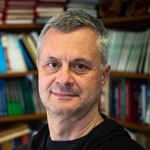
Alexandre Cabral received his bachelor’s degree in Civil Eng. in 1981 from the Pontifical Catholic University of Rio de Janeiro, Brazil. He worked for a major engineering firm in Rio until he moved to Montreal, Canada, in 1986. He graduated with a master’s degree from the École Polytechnique de Montreal in 1988 and completed his Ph.D. at McGill University in 1992. After a two-year stint in the private sector, he accepted a Faculty position with the Civil Eng. Dept, at Université de Sherbrooke. His main fields of expertise include the design of covers with capillary barrier effect and passive methane oxidation biosystems. He also acts as consultant for Canadian engineering companies. Professor Cabral has co-authored papers with researchers and industrial partners from Canada, Europe, United States, Australia, and Brazil. His papers have been published in geotechnical, environmental engineering and scientific journals. He has served as Associate Editor to major publications, was associate vice-president of the Canadian Geotechnical Society and is presently member of the Scientific Advisory Panel of the International Waste Working Group (IWWG). He has been teaching Writing and publishing a scientific paper for nearly 15 years in several formats and in several countries.
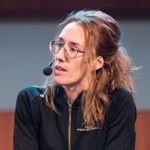
With two Master’s degrees – one in economics and one in law, as a basis, Maria Pettersson received a doctorate degree (LL.D) in 2008. She became associate professor in 2014 and full professor in 2016. Since 2017 she is the Head of Subject in law at Luleå University of Technology. She is specialised in environmental and natural resources law. At the center of her research is the function of law in relation to the management and utilization of natural resources. Examples of MPs research areas include renewable energy development; mining; forest governance; and waste management. A special focus is on permit processes and the appropriateness of different types of environmental requirements and conditions for permit, including implementation and use of limit values and standards. Maria Pettersson is also responsible for the Master’s program in Environmental and Natural Resources law at Luleå University of Technology. READ MORE ABOUT HER WEBINAR >
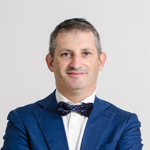
Alberto Pivato is an Associate Professor at the Department of Civil, Environmental and Architectural Engineering (ICEA) of the Padua University, Italy. His main fields of interest are ecotoxicology, waste management, risk analysis, air pollution control and integrated solutions to produce energy and new value added materials from organic residues in decentralized communities. He is member of the Task Group on Waste Biorefinery of the International Waste Working Group (IWWG).
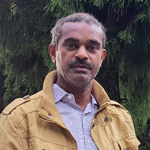
George Varghese has his Bachelors in Civil Engineering, Masters in Environmental Engineering and PhD in Environmental Forensics. He also holds a post graduate diploma in Environmental Law. His primary research focus is Environmental Forensics. His research interests also include Environmental Risk Assessment, Environmental Law& Policy and Environmental Modeling. He has so far guided five PhD projects and about 40 post graduate projects. He has close to 100 publications in journals, conferences and symposia. George is an investigator of many funded projects and reviewer of a number of international journals. He is also a consultant to various government departments and industries on matters related to environmental management. George is currently affiliated as an Associate Professor with the Department of Civil Engineering at NIT Calicut, Kerala, India.
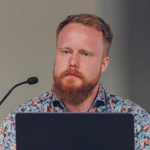
Oskar Johansson is a second year PhD-student in natural resources and environmental law at Luleå Tekniska Universitet (Lulea University of Technology). His research is primarily situated within the role of law regarding waste as a ‘resource’ on one hand and the protection of the environment on the other. READ MORE ABOUT HIS WEBINAR >